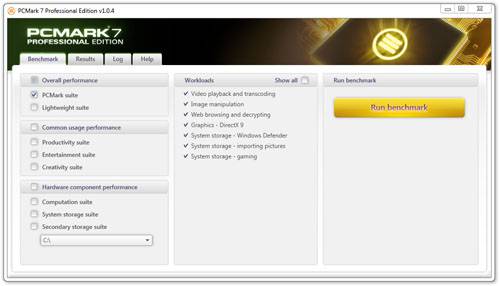- Qualcomm Launches Snapdragon 4 Gen 2 Mobile Platform
- AMD Launches Ryzen PRO 7000 Series Mobile & Desktop Platform
- Intel Launches Sleek Single-Slot Arc Pro A60 Workstation Graphics Card
- NVIDIA Announces Latest Ada Lovelace Additions: GeForce RTX 4060 Ti & RTX 4060
- Maxon Redshift With AMD Radeon GPU Rendering Support Now Available
Seagate Laptop Thin SSHD 500GB Review

Have you ever had a craving for a hard drive the same size as those Girl Scout Thin Mint cookies? Seagate has just the drive for you, and anyone else who’s in the market for a svelte 7mm laptop drive but needs performance at an affordable price. Seagate’s Solid-State Hybrid Thin drive may be small, but it may just be the drive you’re looking for.
Page 3 – Synthetic: PCMark 7
Futuremark’s PCMark benchmarking suite should need no introduction; it has been a staple of PC benchmarks for the better half of a decade. It includes over 25 individual workloads designed to measure all aspects of system performance and gives individual scores in each test as well as an overall system performance score for easy system comparisons.
PCMark 7 offers a more accurate measure of performance as compared to its predecessor, PCMark Vantage. The storage scoring metrics especially were significantly re-tuned and optimized with SSDs in mind to give a more balanced disk subsystem score.









If you missed it and are wondering how to interpret our graphs, check back to the last two paragraphs on the first page! Now jumping into our results, the SSHD Thin shows some fairly consistent results in the PCMark tests, although the “best” results give a considerable improvement in the gaming and application load subtests. When the right data is in the 8GB cache the SSHD Thin can post a best time that is faster than its average result in RAID 0.
The overall PCMark Suite score gives us some telling results. Despite its slower rotational speed and tiny 7mm single-platter design, the “Laptop Thin” not only surpasses the desktop hard drive, but delivers an average result closer to the SSD than the HDD. Obviously, as we delve deeper into the actual storage tests the SSD begins to pull away from the SSHD, but we can clearly see that the claim of near SSD-like performance has merit.
Between a 7200RPM mechanical drive and a 5400RPM SSHD Thin, it’s clear which one people would prefer to have. The SSHD Thin result easily outperforms the HDD result in every single test and by a considerable amount in the Application Load and Gaming subtests in particular. I guess rotational speed isn’t everything!
Support our efforts! With ad revenue at an all-time low for written websites, we're relying more than ever on reader support to help us continue putting so much effort into this type of content. You can support us by becoming a Patron, or by using our Amazon shopping affiliate links listed through our articles. Thanks for your support!





